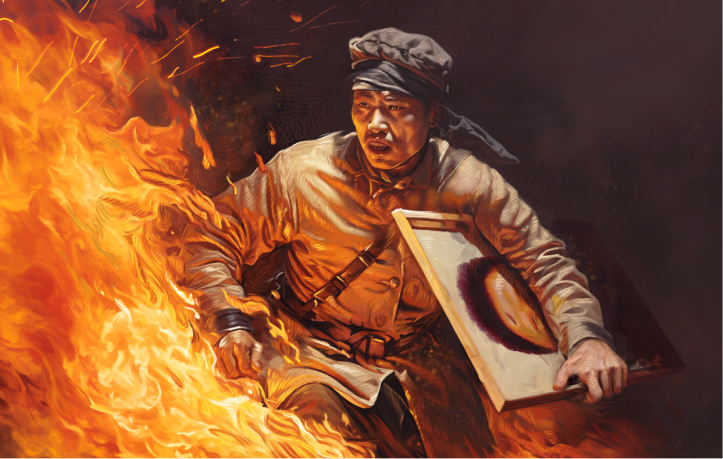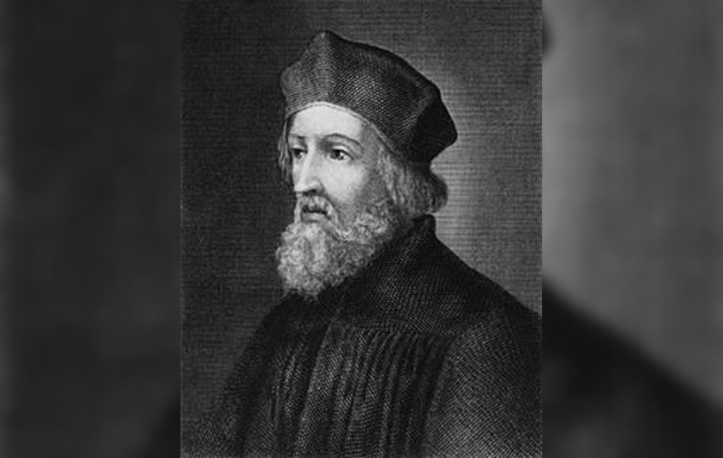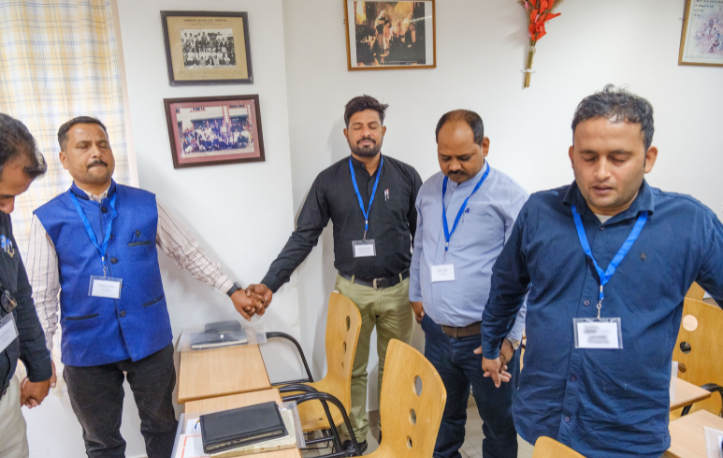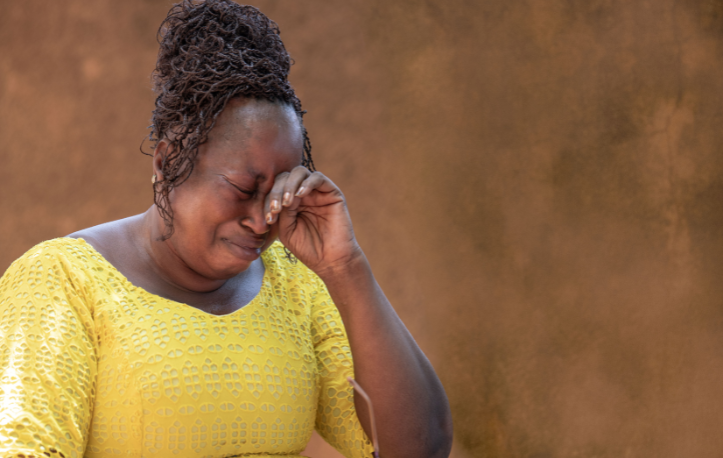Ahn did everything the North Korean government required of him, including nearly sacrificing his life. In the end, though, it still wasn’t enough.
Born into an upper-class North Korean family, Ahn’s devotion to his country and to the Kim dynasty began at an early age. His father was a member of Kim Jong Il’s special military unit, an honour that came with both responsibilities and great privileges.
“My relatives were pretty much all related to security forces or police,” said Ahn, now in his late 30s. “Ever since I was young, my parents taught me to be faithful to the Kim family.”
While hundreds of thousands died during a famine known as the Arduous March in the mid-1990s, Ahn’s family was largely unaffected. “When I went outside to the street when I was young, I could see the corpses of the people who died from starvation,” he said. “But because I was in a high-class family, I never starved.”
With such privileges, Ahn’s family revered the Kim family more than the average North Korean, though all citizens were required to worship the country’s ‘Supreme leader’, at least outwardly.
Into the Fire
As a youth, Ahn was recruited to join the North Korean army, and after several years of testing and training, he began his compulsory 10-year military service at age 17. He said his first assignment in the elite ‘Sixth Unit’ was to protect one of the Kim family’s yachts, and after five years of service, he was promoted to a supervisory position.
While standing watch one night, the barracks where 10 of his soldiers were sleeping caught fire. His primary concern was not the safety of the sleeping soldiers, however, but the beloved portraits of Kim Il Sung and Kim Jong Il that hung on the walls.
North Koreans are required to display portraits of the Kim family in every office, classroom and living room. The portraits, which are considered holy, must be cleaned daily in a ritualistic way. Government officials even conduct house checks to ensure that the portraits are handled and displayed properly.
In emergency situations, North Koreans have a sacred duty to save these portraits, and people who do are often praised as heroes by state media and rewarded by government officials. If the portraits in the barracks had burned, Ahn said, the incident would have been investigated. If it had been determined that he could have saved them, he probably would have been sent to a prison camp. He had no choice but to save the portraits from the fire.
Badly burned, Ahn spent eight months in the hospital fighting for his life. His hands and head suffered the most severe burns, and today he wears a wig to cover the scars on his scalp. “During those eight months, there were countless times when I would have possibly died,” he said. “I had surgery around 40 times. When I saw how my face looked for the first time, I fell into despair. Two times I contemplated suicide.”
Ahn received no government reward for his heroic act because the nation was focused on mourning the recent death of Kim Jong Il. “At the time,” Ahn said, “I thought it was unfair. But now, as I look back, I think it was God’s providence.”
In lieu of a more official reward, Ahn’s supervisor gave him a certificate that allowed him to leave the military before completing his required 10 years of service. But three months later, a government official called Ahn demanding $460 for the certificate.
Ahn argued with the man over the phone, telling him that he should have received the $460 as a reward himself instead of having to pay a bribe to a government official.
“After receiving this phone call,” Ahn said, “I felt betrayed by the North Korean authorities. It was at that time that I decided to defect from North Korea.”
On the Run
In 2014, Ahn and his sister defected to China, where they lived for a year before finding someone to help them move to South Korea. Thinking it would be safer for them to make the move separately, Ahn crossed the border first. But before his sister could leave, Chinese authorities arrested her and returned her to North Korea, where she was imprisoned.
With no way to help his sister, Ahn focused on becoming settled in his new home country. For North Korean defectors, that means spending six months at a resettlement centre undergoing background checks and learning the basics of life in South Korea, a country far different from their own.
While at the resettlement centre, North Koreans are encouraged to explore different religions. So each week, Ahn attended different worship services, mostly, he admits, for the dried squid they offered attendees.
However, he also attended the services to meet people. Eventually, after exploring various faiths, he attended a Christian worship service. “At first I just went to the church because I was lonely,” he said, “but through the serving and love of the Christian people, then I became curious about the Jesus that they believed in. As I learned more about Jesus, then I met Jesus.”
As he adjusted to life in South Korea, Ahn said he never wanted to think about his home country again; it had hurt him too much. Then, about four years later, he learned that his sister had been released from prison and died a short time later. Ahn was devastated by the news, but he took comfort from reading Scripture and attending church.
In 2019, he began attending a 12-week programme at his church called North Korea Missions School. “I didn’t want to think about North Korea,” he said, “but as I went to this programme, I thought, ‘Ah, God is making me think about North Korea again’.”
Through the missions programme, Ahn visited a shelter in Thailand where North Korean defectors study the Bible for three months and receive various forms of care. He met a woman there whom he later married, and he also found a new direction for his life. “After going there, that’s when I received the calling from the Lord to go to theological college,” Ahn said.
In a New Light
In the time he has been away from North Korea, Ahn has reassessed his former life from the perspective of his new life in South Korea — and his new life in Christ.
In North Korea, he had been taught that Christianity was evil. He remembered seeing a government film that depicted Christian missionaries as criminals who came there to corrupt the people. “Missionaries are viewed as American spies [who] came to Korea under the guise of setting up medical infrastructure,” he said. “[We were told] they would actually take the children and take their organs out and sell them.”
Ahn said he now understands that North Korea’s devotion to the Kim family is a religious cult. “I didn’t think of it as a religion at the time,” he said. After attending church in South Korea, however, he saw how the rituals and beliefs taught by the North Korean government attempted to mimic Christianity.
Juche, the North Korean philosophy of self-reliance that underlies the nation’s government and way of life, states that the Kim family is divine, immortal and worthy of all prayer, worship, honour, power and glory.
In addition, possibly because of Christianity’s strong history in the region prior to the founding of North Korea in 1948, the Juche ideology has even tried to adopt a sort of triune godhead. However, unlike the coequal Trinity of orthodox Christianity, Juche upholds three separate ‘gods’, with Kim Il Sung as the father; his first wife, Kim Jong Suk, in a supporting role; and Kim Jong Il as the son.
Since becoming a Christian, Ahn has continued to notice how the Juche cult has borrowed certain practices from the Christian faith. For example, praying in the morning is common among Christians in South Korea, and something similar is practised in Juche.
“In North Korea, we had the same exact thing,” he said. “We didn’t call it morning prayer, but the people get up at 5am and go to the statues of Kim Il Sung or the mosaic pictures, and they wipe them down with a wet rag and bow down to them.”
While Christians commonly gather for Bible study, Ahn said North Koreans gather to study the sayings of the Kim family and strive to live according to their teachings.
“In the same way as in church you have the Word of God,” he said, “we had the word of the Kim family. You write on a notepad, ‘The Great Leader said … ’, and under that, you have to put how you violated that during the past week. You have to analyse the reason why you made that mistake. Then you have to write the plan you have for preventing yourself from making the same mistake in the future.”
As the Bible encourages Christians to confess our sins one to another, North Koreans participate in selfcriticism meetings. As Christians look to the Ten Commandments as God’s law, North Koreans follow Juche’s ‘Ten Principles’.
“If someone is interested in knowing specifically what it means to be faithful to the Kim family, search the Ten Principles,” Ahn said. “When someone gets accepted as a Communist Party member, they have to memorise the Ten Principles. I had to memorise those principles.”
Remembering His People
Ahn continues to minister to North Koreans through camps for defectors and in various other ways. Recently, he started a prayer group for students who are second-generation North Korean immigrants.
Ahn is also studying theology at a Christian university, while his wife, who recently had a baby, is studying Christian music. “My dream is to prepare well here through God’s Word, and then in the future, when reunification happens, to preach the gospel to the souls in North Korea,” Ahn said.
Although he tries to stay in touch with his mother and older brother, who still live in North Korea, Ahn learned last year that his mother had been imprisoned for 10 months for talking on the phone with him. He said that she lost almost 18 kilograms from malnutrition while in prison.
“I was in the [military’s] Sixth Unit,” he said, “which means I know a lot of secrets about North Korean authorities. Since they can’t have revenge on me now, they’re having revenge on my family members.”
Ahn asks that people pray for his ministry work, his continued studies and his family’s safety. He also requests prayer that more North Koreans will come to know Christ.
He wants Christians in the West to remember that God loves the people of North Korea, though they are led by a brutal cultic dictator. “You can forget about all of my story if you want,” he said, “but don’t forget [the] people in North Korea. I want you to remember and pray for the souls in North Korea whom God loves.”
Ahn estimates that tens of thousands of North Korean Christians are held in prison camps for political prisoners. “According to our ways of thinking, they are not able to come out of these camps alive,” he said. “But maybe God has some way … for them to be able to come out of the camps.”
He said he looks forward to the day when the two Koreas are reunited as one country. Many on both sides of the Demilitarised Zone (DMZ) long for reunification, especially older Koreans who were separated from loved ones when Kim Il Sung founded North Korea. Ahn said he believes reunification would lead to a flourishing of the gospel, and some of his family members would be among those hearing the Good News.
Until the north and south again become one nation, however, Ahn and many others will continue to proclaim the gospel to North Koreans by any means possible.




Submit a Prayer